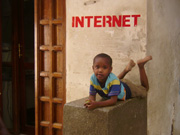
November 9, 2022 International conference "Researching the Anglo-Boer War of 1899–1902: The Practice and the Future"
THE MINISTRY OF SCIENCE AND HIGHER EDUCATION
OF THE RUSSIAN FEDERATION
RUSSIAN ACADEMY OF SCIENCES
INSTITUTE FOR AFRICAN STUDIES
|
30/1 ул. Спиридоновка, Москва, 123001 |

|
30/1 Spiridonovka str., Moscow, 123001 |
The Centre for History and Cultural Anthropology and the Centre for Southern Africa Studies are holding an on/offline international conference:
November 9 2022
Venue: Institute for African Studies, Russian Academy of Sciences, with an optional online attendance (by Zoom).
The event starts at 10am (South African time).
The conference marks the 120th anniversary of the end of the first major armed conflict of the twentieth century.
The current attitudes of South Africans towards this war seem ambiguous. It was fought predominantly by European settlers for sovereignty over territories that had been taken over from African peoples. The collective memory of this conflict was long cultivated for political purposes by the National Party. It is believed that the causes of this war, as well as its military and international aspects, have been exhaustively investigated. Studying, let alone commemorating, this war is not a priority in South Africa, where the attention of scholars and the public has been drawn to the history of African peoples and their liberation struggle. The notion that this war shaped the South African nation (‘the War for South Africa’, to use Bill Nasson’s expression), has not been entrenched in popular consciousness.
However, over the past decades, the historiography of the war has expanded. The military aspects, such as strategy, tactics and the outcome of hostilities, have become less prominent. Instead, cultural history has come to the foreground: the significance of the Anglo-Boer War for international relations; lived experiences of combatants and civilians; wartime violence and its victims; the influence of the attitudes, which were formed during and as a consequence of the conflict, on social change in South Africa. The participation of Africans, both on and off the battlefield, has been diligently researched.
Public interest in this war has not disappeared. Boer War groups are active in social networks. Leading publishers in South Africa bring out works of popular scholarships on this war. The conflict is still regarded as a crucial event in the history of Afrikaners, which contributed to the strengthening of their ethnic consciousness.
Moreover, an interest in the Anglo-Boer War still exists outside South Africa. In Russia, the past decades saw the publication of popular books, chapters in academic books (for example, by the prominent historians Apollon Davidson and Irina Filatova) as well as articles in magazines and scholarly journals. Besides, Gennady Shubin (Institute for African Studies, Russian Academy of Sciences), in collaboration with his colleagues from the Institute of World History, brought out a 13-volume collection of documents on the Russian involvement in the war.
Although the Anglo-Boer War occupies an insignificant place in the historical consciousness of Russians, it has been rediscovered by bloggers. On Russian online platforms, there have been lively discussions of the support for the Boer republics by the Russian Empire as well as of the participation of Russian volunteers in the hostilities on the side of the republican forces. Russian politicians, diplomats and public figures have appealed to the memory of the Anglo-Boer War.
Our conference will help to stimulate dialogue between Russian and international historians who study the Anglo-Boer War.
The following themes will be discussed:
- • The main aspects of the historiography of the Anglo-Boer War
• The Anglo-Boer War studies in Russia and South Africa
• The Russian involvement in the Anglo-Boer War in the context of the Russian volunteers’ participation in military conflicts.
As a result, we would like to discern possible routes to solving the following problems:
- • Is there potential for a more robust study of the Anglo-Boer War and for exploring new themes?
• What are the most promising directions in the Anglo-Boer War studies?
Publication of the conference transactions is planned.
The conference will be held in a mixed mode (online and offline).
Attendance and participation are free.
If you would like to take part in the discussion or watch the event, please email for a Zoom link: vgribanova@mail.ru
Working languages: English and Russian.
Organisers of the conference:
Valentina Gribanova: vgribanova@mail.ru;
Andrey Tokarev: stp79@yandex.ru;
Boris Gorelik: boris.gorelik@inafr.ru
